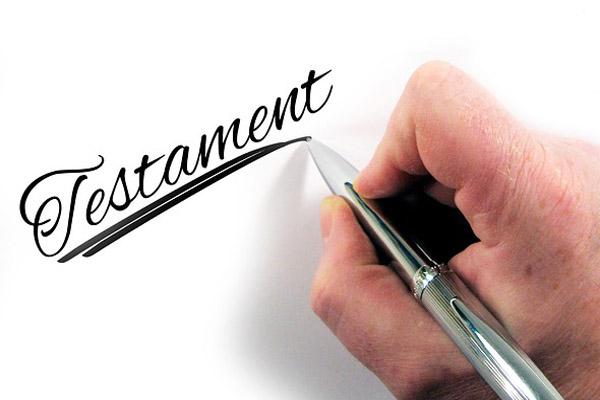One of the major concerns that have occupied our society has been the distribution of assets accumulated in life to the heirs. For this, the legal figure of the will has to be created, a document by which it is determined how the assets should be distributed after the death of the deceased and how they should be disposed off.
For the drafter to write a fully valid will, he must comply with legal requirements, such as raising it to the public through a notary, doing it before at least two witnesses, or doing it with adequate mental capacities. If you are looking for what steps must be carried out to contest a will, in this article, we will explain it to you.
When Can a Will be Challenged?
To challenge a will, it must be considered whether the testator has met the minimum legal requirements. Thus, the person who has an interest in acquiring any property of the inheritance, either through some property or by receiving money, must base the challenge on any of the following causes.
Read also: How to Organize a Company Party
- For a will to be valid, the testator must make it before a notary public, and this must express his will in a document, which after protocolizing, will become a will. Once the will has been drawn up, the notary must read it to the testator to understand its content and signs. It is stating that he agrees with its content. For the signing of the will, there must be at least two witnesses. The witnesses do not need to be acquaintances or relatives.
- One of the problems that frequently arise is the modification of the will shortly before the death of the testator. On these occasions, it is possible that the testator does not have sufficient mental capacity to know what he is doing or is under the manipulation of an interested party. If this cause is known, the person interested in contesting the will can claim that the testator did not understand what he was doing. For this, it will be necessary to prove a medical certificate that recognizes that that person suffered some disability to discern.
- The will may be drawn up under pressure from the alleged heirs or interested parties. In these cases, it will be necessary to prove that the testator was pressured to draft the will so that it did not benefit him. It must be remembered that the testator can change the will whenever he wants and as many times as he deems necessary. It is unnecessary for anyone to know about the modifications it undergoes or whether a new testament has revoked it. This is how the law facilitates to protect against alleged fraud.
How is a Will Challenged?
To challenge a will, it is necessary to file a claim with the Court of First Instance of the province where the testator died. Thus, it is essential to hire a lawyer and solicitor to represent the plaintiff in the trial. This implies initiating a judicial proceeding. It will be necessary to present all the evidence required to demonstrate that one of the causes explained in the previous section has been incurred.

It is necessary to present all the essential and timely evidence since if it is not done, it is better not to start a trial. This is because the Civil Procedure Law prevents holding two trials on the same problem for not presenting the necessary evidence in the first if they were already available.
As soon as the Court of First Instance decides whether or not to admit the claim, the other party will be notified of the request, and they will have 20 days to answer the lawsuit. In answering the claim, the defendant must allege sufficient causes and justifications to clarify that the will does not incur any of the reasons for the challenge.
Once the claim is answered, a pre-trial hearing will be held within a maximum period of 20 days from the response to the claim, where an agreement will be sought between the parties to avoid going to trial. If an agreement is not reached that satisfies the parties, the facts and arguments they disagree are established, and the necessary evidence is proposed to determine who is right.
During the trial, the test will be performed, such as forensic certification. The testator was not in a mental state to modify the will and how the inheritance assets are distributed.
Also read: Here are the Best Office Stretching Exercises to Consider
The conclusions of each party will also be presented, emphasizing the arguments that most favor them. Then, a sentence is passed where it is established who is right in their claims.
Adapted and translated by The Cop Cart Staff
Sources: Uncomo







